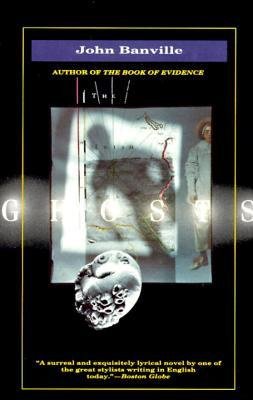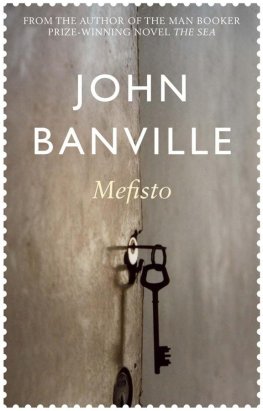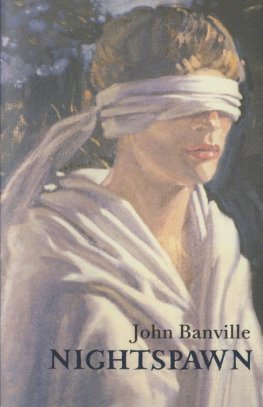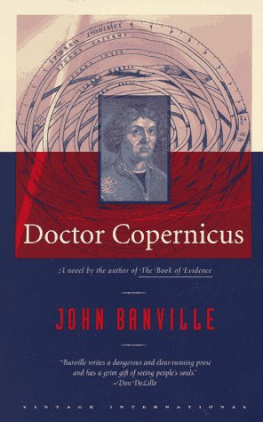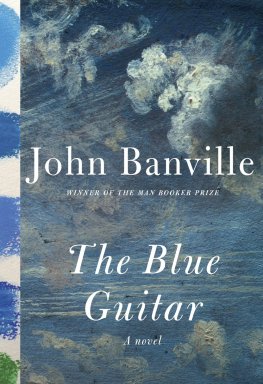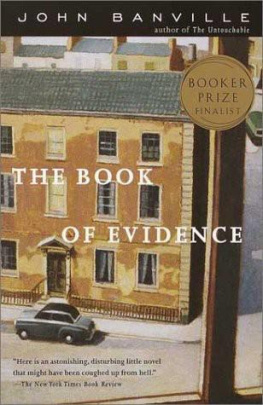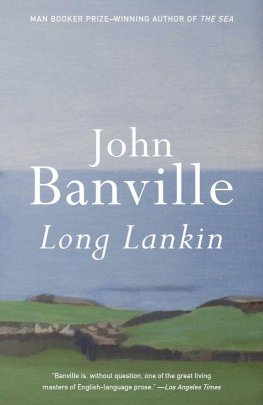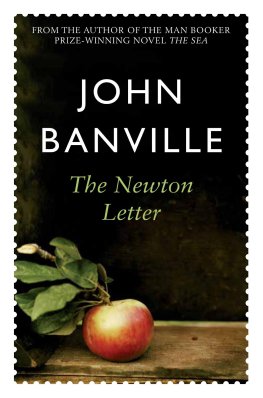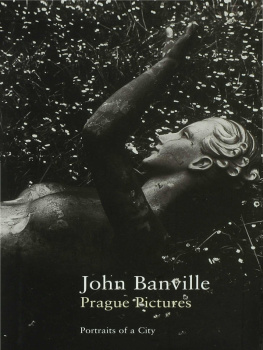John Banville - The Infinities
Here you can read online John Banville - The Infinities full text of the book (entire story) in english for free. Download pdf and epub, get meaning, cover and reviews about this ebook. year: 2010, publisher: Knopf, genre: Art. Description of the work, (preface) as well as reviews are available. Best literature library LitArk.com created for fans of good reading and offers a wide selection of genres:
Romance novel
Science fiction
Adventure
Detective
Science
History
Home and family
Prose
Art
Politics
Computer
Non-fiction
Religion
Business
Children
Humor
Choose a favorite category and find really read worthwhile books. Enjoy immersion in the world of imagination, feel the emotions of the characters or learn something new for yourself, make an fascinating discovery.

- Book:The Infinities
- Author:
- Publisher:Knopf
- Genre:
- Year:2010
- Rating:5 / 5
- Favourites:Add to favourites
- Your mark:
- 100
- 1
- 2
- 3
- 4
- 5
The Infinities: summary, description and annotation
We offer to read an annotation, description, summary or preface (depends on what the author of the book "The Infinities" wrote himself). If you haven't found the necessary information about the book — write in the comments, we will try to find it.
The Infinities — read online for free the complete book (whole text) full work
Below is the text of the book, divided by pages. System saving the place of the last page read, allows you to conveniently read the book "The Infinities" online for free, without having to search again every time where you left off. Put a bookmark, and you can go to the page where you finished reading at any time.
Font size:
Interval:
Bookmark:
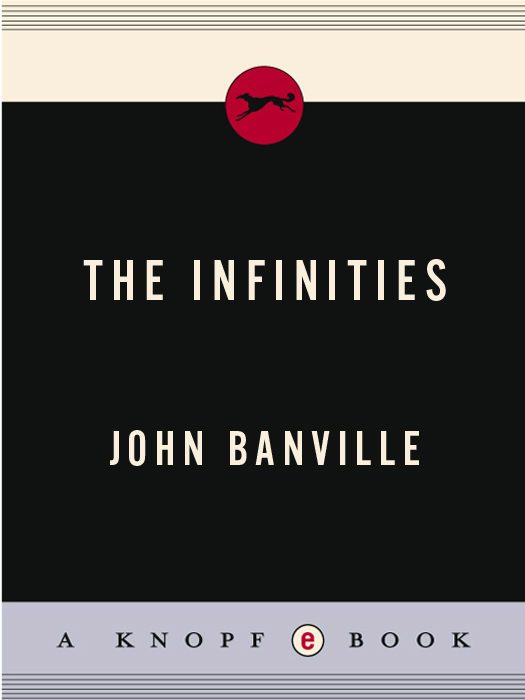
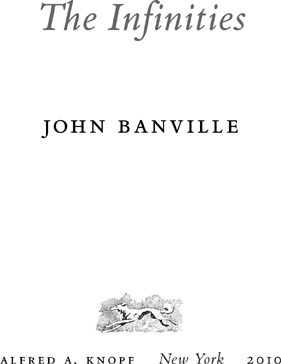
ALSO BY JOHN BANVILLE
Long Lankin
Nightspawn
Birchwood
Doctor Copernicus
Kepler
The Newton Letter
Mefisto
The Book of Evidence
Ghosts
Athena
The Untouchable
Eclipse
Shroud
The Sea
Of the things we fashioned for them that they might be comforted, dawn is the one that works. When darkness sifts from the air like fine soft soot and light spreads slowly out of the east then all but the most wretched of humankind rally. It is a spectacle we immortals enjoy, this minor daily resurrection, often we will gather at the ramparts of the clouds and gaze down upon them, our little ones, as they bestir themselves to welcome the new day. What a silence falls upon us then, the sad silence of our envy. Many of them sleep on, of course, careless of our cousin Auroras charming matutinal trick, but there are always the insomniacs, the restless ill, the lovelorn tossing on their solitary beds, or just the early-risers, the busy ones, with their knee-bends and their cold showers and their fussy little cups of black ambrosia. Yes, all who witness it greet the dawn with joy, more or less, except of course the condemned man, for whom first light will be the last, on earth.
Here is one, standing at a window in his fathers house, watching the days early glow suffuse the sky above the massed trees beyond the railway line. He is condemned not to death, not yet, but to a life into which he feels he does not properly fit. He is barefoot, and wearing pyjamas that his mother on his arrival last night found for him somewhere in the house, threadbare cotton, pale blue with a bluer stripewhose are they, whose were they? Could they be his, from long ago? If so, it is from very long ago, for he is big now and they are far too small, and pinch him at the armpits and the fork. But that is the way with everything in this house, everything pinches and chafes and makes him feel as if he were a child again. He is reminded of how when he was a little boy here his grandmother would dress him up for Christmas, or his birthday, or some other festival, tugging him this way and that and spitting on a finger to plaster down a stubborn curl, and how he would feel exposed, worse than naked, in those already outmoded scratchy short-trousered tweed suits the colour of porridge that the old woman made him wear, and the white shirts with starched collars and, worst of all, the tartan dicky bows that it afforded him a wan, vindictive pleasure to pull out to the limit of their elastic and let snap back with a pleasingly loud smack when someone was making a speech or singing a song or the priest was holding up the communion wafer like, he always thought, the nurse on the Hospital Sweepstakes tickets brandishing aloft the winning number. That is how it is: life, tight-buttoned life, fits him ill, making him too much aware of himself and what he glumly takes to be his unalterable littleness of spirit.
He hears from somewhere unseen the faint, muffled clopping of small hoofs; it will be the early postman on his pony, in Thurn und Taxis livery, with his tricorn cap and his post-horn looped on his shoulder.
The man at the window is called Adam. He is not yet thirty, the young son of an elderly father, product, as he once overheard that twice-married father say with a sardonic laugh, of my second coming. Idly he admires the dense, mud-purple shadows under the trees. A kind of smoke hovers ankle-deep on the grey-seeming grass. Everything is different at this hour. An early blackbird flies across at a slant swiftly from somewhere to somewhere else, its lacquered wing catching an angled glint of sunlight, and he cannot but think with a pang of the early worm. He fancies he can hear faintly the fleet-winged creatures piping panic note.
Gradually now he is becoming aware of something he cannot identify, a tremor that is all around, as if the air itself were quaking. It grows more intense. Alarmed, he takes a soft step backwards into the protective dimness of the room. Clearly he can hear the sluggish thudding of his heart. A part of his mind knows what is happening but it is not the part that thinks. Everything is atremble now. Some small mechanism behind him in the roomhe does not look, but it must be a clocksets up in its innards an urgent, silvery tinkling. The floorboards creak in trepidation. Then from the left the thing appears, huge, blunt-headed, nudging its way blindly forward, and rolls to a shuddering halt and stands there in front of the trees, gasping clouds of steam. The lights are still on in the carriages; they make the dawn draw back a little. There are bent heads in the long windows, like the heads of sealsare they all asleep?and the conductor with his ticket thing is going up an aisle, clambering along hand over hand from seat-back to seat-back as if he were scaling a steep incline. The silence round about is large and somehow aggrieved. The engine gives a testy snort, seeming to paw the earth. Why it should stop at this spot every morning no one in the house can say. There is not another dwelling for miles, the line is clear in both directions, yet just here is where it halts. His mother has complained repeatedly to the railway company, and once even was moved to write to someone in the government, but got no reply, for all the renown of her husbands name. I would not mind, she will say in a tone of mild sorrow, what noise it made going pastafter all, your father in his wisdom insisted on us setting up home practically on the railway linebut the stopping is what wakes me.
A dream that he dreamt in the night returns to him, a fragment of it. He was dashing through the dust of immemorial battle bearing something in his arms, large but not heavy, a precious but burdensome cargowhat was it?and all about him were the mass of warriors bellowing and the ringing clash of swords and spears, the swish of arrows, the creak and crunch of chariot wheels. A venerable site, an antique war.
Thinking of his mother, he listens for her step above him, for he knows she is awake. Though the house is large and rambling, the floors are mostly of polished bare boards and sounds travel easily and far. He does not want to deal with his mother, just now. Indeed, he finds it always awkward to deal with her. It is not that he hates or even resents her, as so many mortal sons are said to resent and hate their mothersthey should try dealing with our frenzied and vindictive dams, up here on misty Mount Olympusonly he does not think she is like a mother at all. She is absurdly young, hardly twenty years older than he is, and seems all the time to be getting younger, or at least not older, so that he has the worrying sensation of steadily catching up on her. She too appears to be aware of this phenomenon, and to find it not at all strange. In fact, since he was old enough to notice how young she is he has detected now and then, or imagines he has detected, a certain tight-lipped briskness in her manner towards him, as if she were impatient for him to attain some impossible majority so that, coevals at last, they might turn arm in arm and set out together into a future that would bewhat? Fatherless, now, for him, and, for her, husbandless. For his father is dying. That is why he is here, foolish in these too-small pyjamas, watching the dawn break on this midsummer day.
Shaken by thoughts of death and dying he forces himself to fix his attention on the train again. One of the seal-heads has turned and he is being regarded across the smoky expanse of lawn by a small boy with a pale, pinched face and enormous eyes. How intensely the child is staring at the house, how hungry his scrutinywhat is it he is seeking, what secret knowledge, what revelation? The young man is convinced the young boy can see him, standing here, yet surely it cannot besurely the window from outside is a black blank or, the other extreme, blindingly aflame with the white-gold glare of the sun that seemed to take such a long time to rise but now is swarming strongly up the eastern sky. Apart from those avidly questing eyes the boys features are unremarkable, or at least are so from what of them can be made out at this distance. But what is it he is looking for, to make him stare so? Now the engine bethinks itself and gives a sort of shake, and a repeated loud metallic clank runs along the carriages from coupling to coupling, and with a groan the brutish thing begins to move off, and as it moves the risen sun strikes through each set of carriage windows in turn, taking its revenge on the still-burning light bulbs, putting them to shame with its irresistible harsh fire. The boy, craning, stares to the last.
Font size:
Interval:
Bookmark:
Similar books «The Infinities»
Look at similar books to The Infinities. We have selected literature similar in name and meaning in the hope of providing readers with more options to find new, interesting, not yet read works.
Discussion, reviews of the book The Infinities and just readers' own opinions. Leave your comments, write what you think about the work, its meaning or the main characters. Specify what exactly you liked and what you didn't like, and why you think so.

